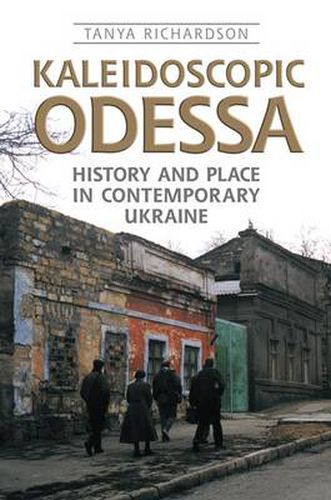Readings Newsletter
Become a Readings Member to make your shopping experience even easier.
Sign in or sign up for free!
You’re not far away from qualifying for FREE standard shipping within Australia
You’ve qualified for FREE standard shipping within Australia
The cart is loading…






The recent tumult of Ukraine’s Orange Revolution and its aftermath has exposed some of the deep political, social, and cultural divisions that run through the former Soviet republic. Examining Odessa, the Black Sea port that was once the Russian Empire’s southern window onto Europe, Kaleidoscopic Odessa provides an ethnographic portrait of these overlapping divisions in a city where many residents consider themselves separate and distinct from Ukraine.
Exploring the tensions between local and national identities in a post-Soviet setting from the point of view of everyday life, Tanya Richardson argues that Odessans’s sense of distinctiveness is both unique and typical of borderland countries such as Ukraine. Kaleidoscopic Odessa provides a detailed account of how local conceptions of imperial cosmopolitanism shaped the city’s identity in a newly formed state. Richardson draws on her participation in history lessons, markets, and walking groups to produce an exemplary study of urban ethnography.
Ethnographically sophisticated and methodologically innovative, Kaleidoscopic Odessa will interest anthropologists, Slavists, sociologists, historians, and scholars of urban studies.
$9.00 standard shipping within Australia
FREE standard shipping within Australia for orders over $100.00
Express & International shipping calculated at checkout
Stock availability can be subject to change without notice. We recommend calling the shop or contacting our online team to check availability of low stock items. Please see our Shopping Online page for more details.
The recent tumult of Ukraine’s Orange Revolution and its aftermath has exposed some of the deep political, social, and cultural divisions that run through the former Soviet republic. Examining Odessa, the Black Sea port that was once the Russian Empire’s southern window onto Europe, Kaleidoscopic Odessa provides an ethnographic portrait of these overlapping divisions in a city where many residents consider themselves separate and distinct from Ukraine.
Exploring the tensions between local and national identities in a post-Soviet setting from the point of view of everyday life, Tanya Richardson argues that Odessans’s sense of distinctiveness is both unique and typical of borderland countries such as Ukraine. Kaleidoscopic Odessa provides a detailed account of how local conceptions of imperial cosmopolitanism shaped the city’s identity in a newly formed state. Richardson draws on her participation in history lessons, markets, and walking groups to produce an exemplary study of urban ethnography.
Ethnographically sophisticated and methodologically innovative, Kaleidoscopic Odessa will interest anthropologists, Slavists, sociologists, historians, and scholars of urban studies.